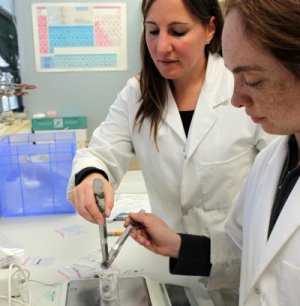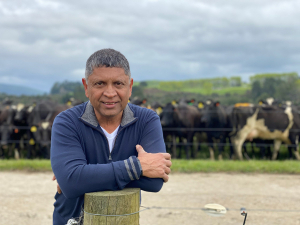MASSEY UNIVERSITY researchers say ash from the Mt Tongariro eruption last week poses no great threat to human health or farming.
But if larger eruptions of Mt Tongariro also produce ash with similar concentrations of fluorine, a significant agricultural hazard can be anticipated.
Professor Shane Cronin says ash can cover pasture and be ingested by grazing animals.
"Further, livestock drinking water in open troughs may be contaminated. Also, rural dwellers with roof-catchment drinking water should be vigilant in avoiding ash runoff into water tanks. During and immediately following ash fall the intake pipe to water tanks should be disconnected until ash has washed off the roof with rain."
Massey University's volcanic risk solutions and the fertiliser and lime research centre, together with University of Canterbury researchers, tested ash samples collected beside state highways 46 and 1, near the volcano, and one sample collected from Gisborne.
Cronin says initial tests show moderate levels of soluble fluorine. "Concentrations between 20 and 70mgF/kg of ash were measured, in a similar range to the widespread volcanic ash produced during the 1995 and 1996 eruptions of Ruapehu.
"Due to the restricted distribution and thin ash fall, this poses no current human health or agricultural threat beyond the immediate vicinity of the volcano. Also, heavy rainfall since the eruption has removed much of the ash and associated contaminants."
In grazed pastoral systems, following ash cover some livestock will be put off grazing by the high levels of acidic and abrasive ash; others will continue to graze. If supplementary feed is unavailable, this may lead to starvation of stock, especially calving stock that face high energy demands at this time of year.
Cronin says if much ash is ingested, livestock risk the disease fluorosis.
"Experience from the 1995-96 eruptions has shown that ash coverings greater than 2mm, low-grazed pastures and low rainfall following ash deposition are critical factors increasing hazard."
Stock deaths normally begin 4-10 days after ash fall if no supplementary feed is available. Heavy or persistent rain quickly disperses ash and rapidly leaches the fluorine, reducing the hazard.
Fluoride is absorbed rapidly by grazing animals from ingested ash or contaminated water, but in moderate levels it does not pass into milk.
Expert advice
In the event of future ash falls Cronin advises as follows:
• If ash fall exceeds 2mm or coats more than 50% of pasture/feed crops, either move stock to less affected areas of the farm or supply supplementary feed.
In these situations also refill stock drinking troughs from bore or river supplies.
• If ash has not washed off pastures after two-three days, raise the quantity of supplementary feed and monitor stock condition closely.
• In general, to reduce impacts from ash fall, maintain pasture length by regular rotation rather than close cropping. Longer pastures are less likely to be completely covered.



















